The Supreme Court judges who will decide Brexit’s fate
The case is expected to be heard on December 7 by Britain's 12 Justices of the Supreme Court
Your support helps us to tell the story
From reproductive rights to climate change to Big Tech, The Independent is on the ground when the story is developing. Whether it's investigating the financials of Elon Musk's pro-Trump PAC or producing our latest documentary, 'The A Word', which shines a light on the American women fighting for reproductive rights, we know how important it is to parse out the facts from the messaging.
At such a critical moment in US history, we need reporters on the ground. Your donation allows us to keep sending journalists to speak to both sides of the story.
The Independent is trusted by Americans across the entire political spectrum. And unlike many other quality news outlets, we choose not to lock Americans out of our reporting and analysis with paywalls. We believe quality journalism should be available to everyone, paid for by those who can afford it.
Your support makes all the difference.The British Government has suffered a momentous defeat in a High Court ruling over whether Article 50 can be triggered by law without a parliamentary vote.
Lord Chief Justice Lord Thomas said on Thursday Theresa May must allow Parliament a vote before formal Brexit proceedings can be invoked in a surprise ruling that complicates the Government’s Brexit plans.
However, the legal challenge could be overturned within a matter of weeks as the Government has been given the right to appeal the decision to the Supreme Court, the UK’s highest legal authority.
The case is expected to be heard on 7 December after it was fast-tracked following the Prime Minister’s pledge to start Brexit negotiations next spring.
So who will consider the Government's appeal?
The case will be scrutinised by Britain’s 12 Justices of the Supreme Court, who were appointed by the Queen.
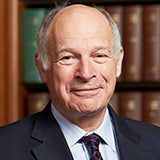
Lord David Neuberger of Abbotsbury
The group is headed by Britain’s most powerful judge, Lord David Neuberger of Abbotsbury, who was appointed President in 2012. Since 1999 Lord Neuberger has been Chairman of the Advisory Committee on the Spoliation of Art (in the Holocaust) and has previously served on the boards of the University of Arts London and the Schizophrenia Trust.
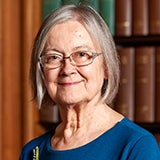
Lady Brenda Hale
Deputy president of the Supreme Court is Lady Brenda Hale. Baroness Hale of Richmond became Britain's first female Law Lord in 2004 and is recognised as the UK's most powerful female judge. She has long been a strong advocate for diversity and has criticised all-white, all-male court appointments, calling for a selection committee to help find candidates.
Lady Hale and Lord Neuberger are joined by 10 other justices who hear appeals on arguable points of law of the greatest public importance.
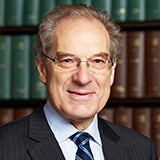
Lord Jonathan Mance
Lord Jonathan Mance became a Supreme Court judge along with nine other Lords of Appeal in 2009. From 2007 to 2009, he served on the House of Lords European Union Select Committee, chairing a sub-committee which scrutinised proposals concerning European law and institutions. He is married to Lord of Appeal Dame Mary Arden and they are the first couple to serve concurrently.
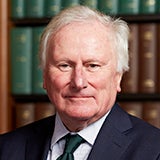
Lord Brian Kerr
Lord Brian Kerr is Northern Ireland’s former Lord Chief Justice. He became the last Law Lord to be appointed before the creation of The Supreme Court in 2009. He served as Junior Crown Counsel from 1978 to 1983, at which point he took silk and served as Senior Crown Counsel from 1988 to 1993 when he was appointed a Judge of the High Court and knighted. He became Lord Chief Justice and joined the Privy Council in 2004.
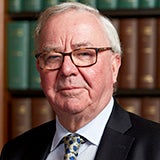
Lord Anthony Clarke
Lord Anthony Clarke spent 27 years at the bar, and was one of the first 11 justices to be appointed to the Supreme Court. During his time at the Court of Appeal he conducted the first Thames Safety Inquiry. In 2005 he was appointed Master of the Rolls and Head of Civil Justice. He was made a life peer in 2009 with the title Baron Clarke of Stone-cum-Ebony.
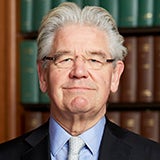
Lord Nicholas Wilson
Lord Nicholas Wilson served on the Court of Appeal from 2005 to 2011 when he was appointed Justice of the Supreme Court, gaining the courtesy style “Lord Wilson of Culworth” for life. From 1993 until 2005 he was a judge of the Family Division of the High Court and spent much of his career practising almost exclusively in the field of family law.
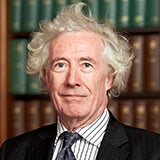
Lord Jonathan Sumption
Lord Jonathan Sumption was raised to the Supreme Court bench directly from the bar in 2012. He is a former historian and has written extensively on the Hundred Years’ War. He was appointed as a Deputy High Court Judge in 1992 and served as a Recorder between 1993 and 2001. He was appointed as a Judge of the Courts of Appeal of Jersey and Guernsey in 1995.
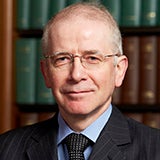
Lord Robert Reed
Lord Robert Reed is a leading human rights authority in Scotland, he also serves as one of the UK’s ad hoc judges at the European Court of Human Rights. He was sworn in as a Justice of the Supreme Court in 2012. He served as a senior judge in Scotland for 13 years, being appointed to the Outer House of the Court of Session in 1998 and promoted to the Inner House in January 2008.
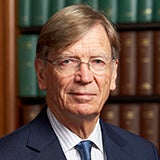
Lord Robert Carnwath
Lord Robert Carnwath served as Attorney General to the Prince of Wales from 1988 to 1994. He was appointed to the Supreme Court in 2011 and subsequently styled as Lord Carnwath of Notting Hill. Between 2007 and 2012 he was Senior President of Tribunals and led the planning and implementation of the reforms of the tribunal system following the Leggatt report.
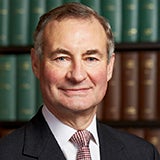
Lord Anthony Hughes
Lord Anthony Hughes lectured law at both Durham University and London’s Queen Mary College. He was appointed to the Supreme Court in 2013 and also sits on the Judicial Committee of the Privy Council, the court of final appeal for UK overseas territories, Crown dependencies and certain Commonwealth countries. In 2006, he was appointed a judge of the Court of Appeal of England and Wales, serving as the vice president of its Criminal Division from 2009 until his appointment as Justice of the Supreme Court.
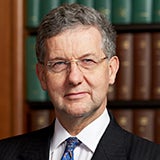
Lord Patrick Hodge
Lord Patrick Hodge joined the Supreme Court in 2013, one of two Scottish justices appointed. He has spoken out against Lady Hale’s calls for diversity quotas in the Supreme Court, saying women wanted “genuine equality”.
Gina Miller, one of the claimants who brought the Article 50 case to the High Court, said in a statement outside the Royal Courts of Justice on Thursday that the Government should accept the ruling and give up its right to appeal to the Supreme Court.
However, the Government, which said it was “disappointed” with the ruling, has confirmed it will push ahead with the appeal.
A Downing Street spokesperson said: “The Government is disappointed by the Court’s judgment.
“The country voted to leave the European Union in a referendum approved by Act of Parliament. And the Government is determined to respect the result of the referendum. We will appeal this judgment.”
Following the Supreme Court ruling, there is a chance the Government could lodge an appeal to the European Court of Justice in Luxembourg, the EU’s highest court.

Join our commenting forum
Join thought-provoking conversations, follow other Independent readers and see their replies
Comments